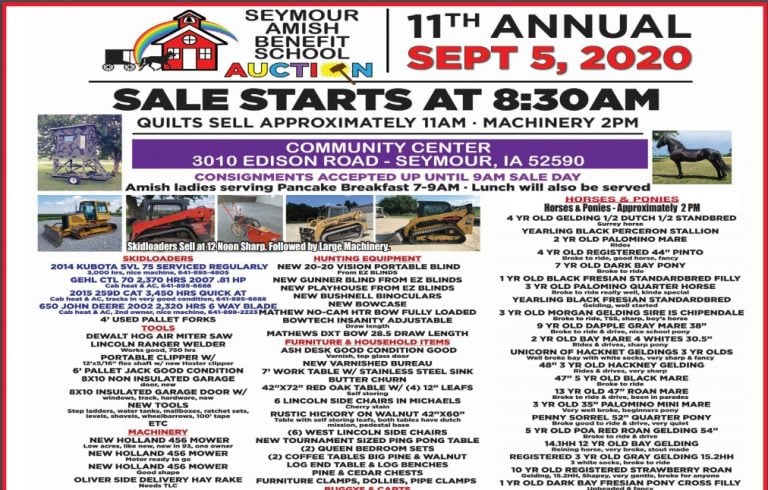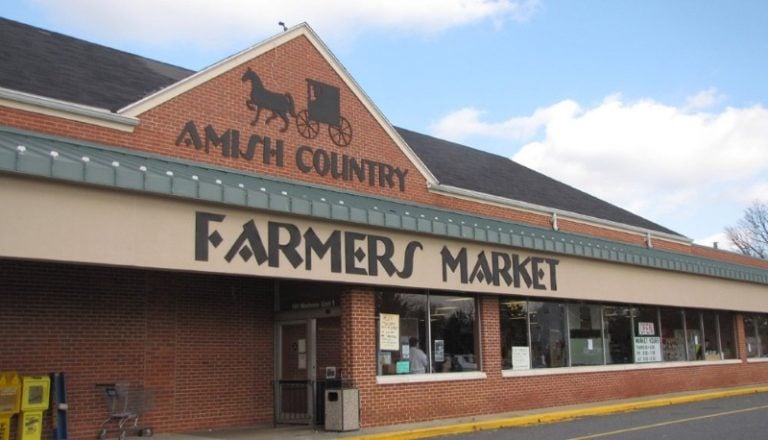The Mid-town Manhattan “Amish Market”
In this guest post by Joe Donnermeyer, he shares an interesting discovery he recently made in Manhattan. Have you ever come across something like this?
In celebration of completing our regimen of Covid-19 shots and wanting to travel once again, my wife (Diane) and I decided to spend a week in a place where we had never been before – New York City. We booked the Wyndham in mid-town Manhattan on 3rd Avenue and East 45th Street, to be precise. Within view from our 28th floor window was the Chrysler Building, a marvel of art-deco architecture, and something else we did not expect.
On the same street as our Wyndham was an “Amish Market”! How did that get there? A quick google search revealed it was a business started by three immigrants from Turkey in the early 1990s who bought some fresh produce from farmers in Lancaster County during the business’s start-up years. So, they used the name for their enterprise.

Photo by Joe Donnermeyer
It was the first thing we visited. Reasonably priced food and a large selection, but could we find anything that was actually Amish made? Well, there was one variety of Swiss cheese with an Amish-sounding product name made in Lancaster County. That was all, out of thousands of grocery items! In fact, the current claim to fame of the so-called “Amish Market” is that a well-known hip-hop artist worked there as a cashier when she was a teenager.
A recent article in the Journal of Plain Anabaptist Communities by Kyle C. Kopko, Steven M. Nolt and Berwood A. Yost discussed the “appropriation” of the Amish name for political campaigns in Pennsylvania (see Volume 1, Issue 2 — https://plainanabaptistjournal.org). In their article, they discuss the use of Amish images by political candidates in recent elections, a time of “increasing polarization” (page 52) of the political dynamics within the United States.
Any attempt to create a comprehensive collection of examples of how the word “Amish” is appropriated today would require several years of full-time dedication to the task. It is quite obvious in the various tourist meccas, like Shipshewana, Indiana, Berlin, Ohio and Lancaster County, Pennsylvania. Even smaller Amish communities, like the West Union settlement in southern Ohio, experiences a steady flow of tourists on weekend day trips by city people from Cincinnati and Dayton.
One does not have to travel far, however, to find examples of Amish name appropriation. Scan the meat shelves in giant supermarkets located in metropolitan centers like Columbus, Ohio. Within seconds, one will find meats, especially chicken, that claim to be Amish raised. Of course, what is not mentioned is that these Amish farmers are engaged in vertically integrated poultry operations or factory farms. They have signed contracts with various companies and the thousands of chickens in their poultry houses are raised in the same manner as non-Amish farmers with similar contracts would raise them. The company then appropriates the Amish name, and usually with a horse-and-buggy logo on the packaging.
The bottom line, whether it is politics or poultry, is to follow the advice of that proverbial phrase – “caveat emptor” or buyer beware – and that it applies to all things at all times when one espies the name “Amish” on a business sign or a product label.
Joe Donnermeyer
Professor Emeritus
The Ohio State University








Manhattan Amish Market
As a Manhattan resident who has visited this location and another “Amish market” on Park Place, I can assure you the owners have no connection to the Plain Community.
We are lucky to have John Stoltzfus of Millport Dairy in Leola, at the Union Square and Tribeca Greenmarkets, several times a week.
That’s why there is the saying,
“Never judge a book by its cover.”
Its everywhere
Since i live in ‘Amish Country’, i can easily spot a fake Amish store. There is one on US 31 in Indiana that actually bought 4-5 buggies and put them out front of the store. Fake Amish stores will have the horse and buggy logo on their sign also.
Right, I think generally the more Amish imagery and use of the Amish name, the less likely it is that a business is Amish, though there are some exceptions to that.
In Europe already
This makes me think that in Europe this was already the case, anabaptism was already synonymous with agricultural success and good products. In 1812 Jacques Klopfenstein, an Anabaptist, published an almanac under the name “The Anabaptist or the farmer by experience”.
In 1818, the almanac was copied by the Deckherr brothers. Their almanac was given the name “The New Anabaptist or Practical Farmer”.
There was no Mennonite or Amish in the Deckherr brothers’ case, just a sales pitch playing on the notoriety of Anabaptists.
Fake Amish Businesses
Unfortunately these have existed in central Illinois also. We locals tend to know the difference; however, oftentimes tourists do not. It’s a marketing ploy.
Genuine Amish businesses in our area oftentimes don’t stipulate that they are Amish. They choose not to reference their religion in that manner.
Off-topic but info needed
The details of the Manhattan Amish market notwithstanding, does anyone here know details about the conservative Amish community in and near Spickard, Missouri? I want to know if they do or don’t use SMV triangle emblems on the backs of their buggies. This is for safety research and is in conjunction with how they just recently set out to use much better ‘reflective’ white edge-striping tape on their buggies, replacing old 1st-generation ‘engineer grade’ tape sold since the late 1930s. Thanks!
Messages Missinf
I receive the announcements to click on the latest message.
When I do, get the page for the subject. When I scroll, there are no messages. This has happened several times. Thank you.
Thanks for letting me know Doug. Are you seeing this message?
It’s a great market and the guys who started it were from Turkey. They bought some wonderful produce while in Lancaster PA and appropriated the name for their little market in order to honor the Amish as a tribute That’s how it started. The bottom line is that the Amish Market is wonderful. The produce is beautiful the staff is kind and helpful and they’ve got so much great stuff, fresh and lovely including prepared foods,
a fish dept and a butcher/deli and it’s a great place to go for lunch. The Amish Market is a wonderful market. So you can take your snooty attitude and stuff it .